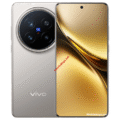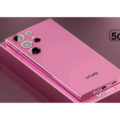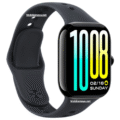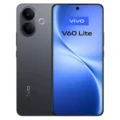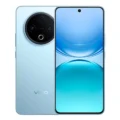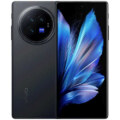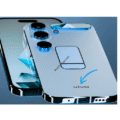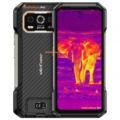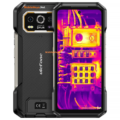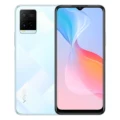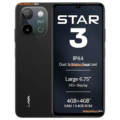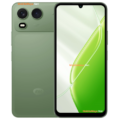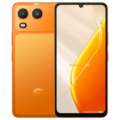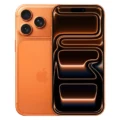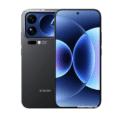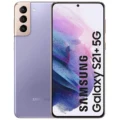Price List: Under Tk.5,000 | Tk.5001-10000 | Tk.10001-15000 | Tk.15001-20000 | Tk.20001-30000 | Tk.30001-40000 | More Mobiles
- Home
- All Mobile
- Vivo
- Vivo S1 Pro
Vivo S1 Pro
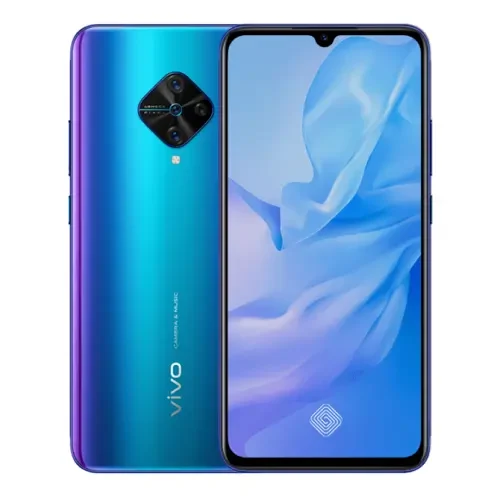


Specifications
Price in Bangladesh
| Official | 8GB 128GB ৳24,990 |
| Unofficial Unofficial prices and phones are available only non authorized shops. The device does not come with an official warranty in Bangladesh. | 8GB 128GB ৳25,500 |
General
| Device Type | Smartphone |
| Model | 1920, PD1945F_EX, 1920_20 |
| Announced | November, 2026 |
| Released | November, 2026 |
| Status | Available |
Hardware & Software
| Operating System OS => Every computer system run on a base software called Operating System (OS). Operating System controls all basic operations of the computer (such as smartphone, PDAs, tablet computers and other handheld devices). The Operating System allows the user to install and run third party applications (apps), apps are used to add new functionality to the device. | Android |
| OS Version | v9.0 |
| Chipset Chipset is a group of integrated circuits designed to perform one or a more dedicated functions, often with real time computing constraints, Popular smartphones are equipped with more advanced embedded chipsets that can do many different tasks depending on their programming. | Qualcomm Snapdragon 665 |
| CPU CPU (Central Processing Unit) mostly known as processors, CPU processes instructions in order to carry out certain functions that make your device operate properly. Processors are often described as the brain of computers, smartphones and tablets, Smartphones and tablets rely on processors to carry out their every task, Processors are an incredibly important factor in selecting any type of computing device, including your smartphone. | Octa core (2 GHz, Quad core, Kryo 260 + 1.8 GHz, Quad core, Kryo 260) |
| CPU Cores | 8 Cores |
| Architecture | 64 bit |
| Fabrication | 11 nm |
| GPU GPU (Graphics Processing Unit) is a single-chip processor designed to rapidly manipulate and alter memory to accelerate the creation of images in a frame buffer intended for output to a display, This includes things such as lighting effects, object transformations, and 3D motion. | Adreno 610 |
| RAM (Memory) RAM (Random Access Memory) is a type of computer memory that can be accessed randomly, any byte of memory can be accessed without touching the preceding bytes that allows information to be stored and accessed quickly from random locations. RAM is the most common type of memory found in computer systems, smartphones, tablets and other electronic devices. | 8 GB |
Design
| Dimensions | 159.3 x 75.2 x 8.7 mm (6.27 x 2.96 x 0.34 in) |
| Weight | 186.7 g (6.60 oz) |
| Colors |
Knight Black, Fancy Sky |
| Build Material | Glass front, glass back, aluminum frame |
Display
| Display Type Display Technology => A number of display technologies and types used in mobile phones => TFT (Thin Film Transistor), IPS (In-Place Switching), OLED (Organic Light Emitting Diode), AMOLED (Active-Matrix Organic Light-Emitting Diode), Super AMOLED (an even advanced version of AMOLED), Resistive Touchscreen (Resistive touchscreens contain two layer of conductive material with a very small gap between them which acts as a resistance), Capacitive Touchsceen (Capacitive touchscreen technology consists of a layer of glass coated with a transparent conductor) | Super AMOLED |
| Size | 6.38 inches (16.21 cm) |
| Resolution | 1080x2340 px (FHD+) |
| Aspect Ratio | 19.5:9 |
| Pixel Density Pixel Density (PPI) is refers to the concentration of pixels on a particular display, measured in pixels per inch (ppi). Pixel density is calculated by dividing the diagonal pixel resolution of a display by its diagonal size, higher pixel density better display quality. | 404 ppi |
| Screen to Body Ratio | 83.39 % |
| Touch Screen | Capacitive Touchscreen, Multi-touch |
| HDR 10 / HDR+ support |
Rear Camera
| Camera Setup | Quad |
| Main Camera | 48 MP |
| Specifications | f/2.4, depth sensor |
| Second Camera | 8 MP |
| Specifications | f/2.4, depth sensor |
| Third Camera | 2 MP |
| Specifications | f/2.4, depth sensor |
| Fourth Camera | 2 MP |
| Specifications | f/2.4, depth sensor |
| Sensors Sensors are electronic components that detects and responds to some type of input from the physical environment. The specific input could be light, heat, motion, moisture, pressure and location, The output is generally a signal that is converted to use in computing systems, a location sensor, such as a GPS receiver is able to detect current location of your electronic device. |
CMOS image sensor |
| Autofocus | Phase Detection autofocus |
| OIS | |
| Flash Flash Light => There is commonly two types of flash lights are used in camera mobile phones, LED Flash (LED flash offers lower power consumption with drive circuitry that takes up very little room, LEDs can be strobed faster than any other light source), Xenon Flash (xenon flash produces an extremely intense full-spectrum white light for a very short duration) | LED Flash |
| Image | 8000 x 6000 Pixels |
| Settings | Exposure compensation, ISO control |
| Zoom | Digital Zoom |
| Shooting Modes | Continuous Shooting, High Dynamic Range mode (HDR), Macro Mode |
| Aperture | f/1.8 |
| Camera Features |
Auto Flash, Custom Watermark, Face detection, Touch to focus |
| Video | 2160p@30fps, 1080p@30fps |
| Video Recording Features | 1920x1080 |
| Video FPS | 30 fps |
Front Camera
| Camera Setup | Single |
| Secondary |
32 MP, f/2.0, 0.8µm |
| Flash Flash Light => There is commonly two types of flash lights are used in camera mobile phones, LED Flash (LED flash offers lower power consumption with drive circuitry that takes up very little room, LEDs can be strobed faster than any other light source), Xenon Flash (xenon flash produces an extremely intense full-spectrum white light for a very short duration) | Screen flash |
| Aperture | f/2.0 |
| Video | 1080p@30fps |
| Video FPS | 30 fps |
Battery
| Battery Type Battery Type => Cell phones run on various kinds of batteries depending on the manufacturer, phone size or shape and features. There are basically four types of cell phone batteries => Lithium Polymer, Lithium Ion, Nickel Metal Hydride and Nickel Cadmium. | Li-Ion (Lithium Ion) |
| Placement | Non-removable |
| Capacity Battery Capacity is a measure (typically in Amp-hr) of the charge stored by the battery, and is determined by the mass of active material contained in the battery. The battery capacity represents the maximum amount of energy that can be extracted from the battery under certain conditions. | 4500 mAh |
| Quick Charging | Fast, 18W |
| USB Type-C | USB Type-C 2.0 |
Storage
| Storage Type | eMMC |
| Storage Capacity | 128 GB |
| USB OTG |
Network
| 2G Network |
GSM 850 / 900 / 1800 / 1900 |
| 3G Network |
HSDPA 850 / 900 / 2100 |
| 4G Network |
1, 3, 5, 28, 38, 40, 41 |
| SIM SIM (Subscriber Identity Module) is a small card that contains mobile network subscriber's account information. This allows the phone using the card to attach to a mobile network. The SIM card is most commonly associated with GSM and UMTS mobile networks. Moving a SIM card from one phone to another allows a subscriber to switch mobile phones without having to contact their mobile network carrier. SIM cards can also be used by a phone to store limited amounts of data, such as phone numbers and text messages. | Standard SIM |
Data
| GPRS GPRS (General Packet Radio Service) is a packet oriented mobile data service on the 2G and 3G cellular communication system's global system for mobile communications (GSM), Generally, GPRS is used for the purpose of wireless data transfer, such as sharing pictures and videos or browsing the Internet via a mobile phone connection. | |
| EDGE EDGE (Enhanced Data GSM Environment) is a wireless network technology generally considered the next step in the 2G network offers data transfer rates up to four times faster than ordinary GSM networks, Generally, EDGE is used for the purpose of wireless data transfer, such as sharing pictures and videos or browsing the Internet via a mobile phone connection. | |
| Speed | HSPA, LTE |
| Web Browser Web Browser => a web browser is a software application used to locate, retrieve and display content on the World Wide Web, including Web pages, images, video and other files, The primary function of a web browser is to render HTML, the code used to design or markup webpages. | HTML5 |
Messaging
| SMS SMS (Short Messaging Service) is a text messaging service component of phone, Web, or mobile communication systems. It uses standardized communications protocols to allow mobile phone devices to exchange short text messages over the networks. | Yes |
| MMS MMS (Multimedia Messaging Service) is a standard way to send messages that include multimedia content (audio clips, video clips and images) to and from mobile phones over wireless networks using the WAP protocol. | |
| Email Email (Electronic Mail) is a system for receiving, sending, and storing electronic messages, Similar to a letter, email is text messages that may contain files, images, or other attachments sent via the internet to a recipient by using applications and software prograps. An email address is required to receive email, and that address is unique to the user. | Yes |
| IM IM (Instant Messaging) is an exchange of text messages through a software application, it enable you to create a kind of private chat room with another individual in order to communicate in real time over the Internet. | Yes |
Connectivity
| Bluetooth Bluetooth is a wireless communications technology for exchanging data between mobile phones, headsets, computers and other network devices over short distances without wires, Bluetooth technology was primarily designed to support simple wireless networking of personal consumer devices. | 5.0, A2DP, LE |
| Wi-fi Hotspot | |
| Infrared Infrared connectivity is an old wireless technology used to connect two electronic devices. It uses a beam of infrared light to transmit information and so requires direct line of sight and operates only at close range. | |
| USB | USB Type-C 2.0, OTG |
| GPS GPS The Global Positioning System is a satellite-based radio navigation system, GPS permits users to determine their position, velocity and the time 24 hours a day, in all weather, anywhere in the world, In order to locate your position, your device or GPS receiver must have a clear view of the sky. | GPS, GLONASS, GALILEO, BDS |
| NFC NFC (Near field communication) is a set of standards for smartphones and similar devices to establish peer-to-peer radio communications with each other by touching them together or bringing them into proximity, usually no more than a few inches. |
Media
| FM Radio | FM radio |
| Loudspeaker | Yes |
| 3.5mm Jack | Yes |
Sensors & Security
| Fingerprint Sensor | |
| Fingerprint Sensor Position | On-screen |
| Light Sensor | Light sensor, Proximity sensor, Accelerometer, Compass, Gyroscope |
| Face Unlock | Yes |
More
| Made By | China |
Performance Tests
Vivo S1 Pro Price in Bangladesh
The Vivo S1 Pro is officially priced at ৳24,990 in Bangladesh for the 8GB RAM + 128GB storage variant. The unofficial price may vary slightly, currently around ৳25,500.
Positioned in the mid-range smartphone segment, the Vivo S1 Pro offers a striking balance of style and functionality. It brings together a vibrant Super AMOLED display, a capable Snapdragon 665 chipset, a quad rear camera setup with a 48MP main sensor, and a 32MP front camera—all wrapped in an elegant design. Released in November 2019, this phone targets users seeking a premium look and feel without the flagship price.
Whether you’re into photography, gaming, or binge-watching your favorite series, the S1 Pro is crafted to handle everyday tasks smoothly, making it a great all-rounder in its price range.
Price & Variants
| RAM & Storage | Price (BDT) | Status |
|---|---|---|
| 8GB + 128GB | ৳24,990 | Official |
| 8GB + 128GB | ৳25,500 | Unofficial |
Vivo S1 Pro Specifications
The Vivo S1 Pro is a mid-range Android smartphone launched in November 2019, packed with modern features and an eye-catching design.
| Feature | Details |
|---|---|
| Model Name | Vivo S1 Pro |
| Release Date | November 2019 |
| Market Availability | Available |
| Official Price | ৳24,990 (8GB + 128GB) |
| RAM & Storage | 8GB RAM + 128GB Storage |
Display and Design
The Vivo S1 Pro boasts a 6.38-inch Super AMOLED display with a Full HD+ resolution of 1080×2340 pixels and a 19.5:9 aspect ratio. With a pixel density of 404 ppi and an impressive 83.39% screen-to-body ratio, it delivers sharp visuals and vibrant colors—perfect for media consumption.
Design-wise, the S1 Pro stands out with its glass front and back paired with an aluminum frame, giving it a premium touch. It comes in two elegant shades—Knight Black and Fancy Sky—and weighs 186.7g, maintaining a slim profile at 8.7mm thickness.
Performance and Processor
Under the hood, the phone is powered by the Qualcomm Snapdragon 665 chipset built on an 11nm process, featuring an Octa-core CPU (2 GHz + 1.8 GHz Kryo 260 cores) and Adreno 610 GPU.
With 8GB of RAM and 128GB of internal storage (expandable via USB OTG), the S1 Pro handles multitasking, social media, and casual gaming with ease. While it’s not built for high-end gaming, it’s more than sufficient for daily use and moderate performance demands.
Camera and Video
The rear of the S1 Pro sports a quad-camera setup, headlined by a 48MP main sensor (f/1.8). Supporting lenses include an 8MP ultra-wide sensor, and two 2MP depth and macro lenses, all with f/2.4 aperture. The camera supports features like HDR, macro mode, digital zoom, and Face Detection, with video recording at 1080p@30fps.
On the front, a 32MP selfie camera (f/2.0) captures detailed portraits, aided by screen flash. It’s ideal for vloggers or anyone who loves crisp, well-lit selfies.
Battery and Charging
The phone is equipped with a 4500mAh non-removable Li-Ion battery. It supports 18W fast charging via USB Type-C, giving you enough power to last a full day on typical usage. However, charging speeds are modest by today’s standards.
Connectivity and 5G Support
The Vivo S1 Pro supports 2G, 3G, and 4G LTE bands (1, 3, 5, 28, 38, 40, 41), along with dual SIM capability.
Other connectivity features include:
- Bluetooth 5.0
- Wi-Fi hotspot support
- USB Type-C 2.0 with OTG
- GPS with GLONASS, GALILEO, and BDS
- FM Radio
- 3.5mm headphone jack
There’s no 5G support, which aligns with its 2019 release timeline.
Additional Features
- Operating System: Android 9.0 (Pie)
- Custom UI: Funtouch OS
- Fingerprint Sensor: In-display
- Face Unlock: Yes
- Sensors: Light, Proximity, Accelerometer, Compass, Gyroscope
Despite lacking newer software updates, the phone includes a full suite of sensors and biometric features.
Reason to Buy
Here are some compelling reasons to consider the Vivo S1 Pro:
- Stylish Design with a glass body and vibrant display
- Quad Camera Setup including 48MP main and 32MP selfie
- Ample RAM (8GB) for smooth multitasking
- Long Battery Life (4500mAh)
- In-display Fingerprint Sensor
- Value for Money in Mid-range Segment
Verdict
The Vivo S1 Pro delivers an excellent combination of design, display, camera, and battery life at a mid-range price point. It’s perfect for users looking for a stylish phone with decent camera performance and everyday usability.
Though it lacks 5G and newer Android updates, its build quality and reliable performance make it a worthy option for students, casual users, and style-conscious buyers.
FAQ
Q1: Is Vivo S1 Pro good for gaming?
A: It’s capable of handling casual and light gaming, but not ideal for high-end titles.
Q2: Does Vivo S1 Pro support 5G?
A: No, the phone only supports up to 4G LTE.
Q3: Is the storage expandable?
A: While there’s no microSD slot, it supports USB OTG for external storage.
Q4: Does the phone have an in-display fingerprint sensor?
A: Yes, the Vivo S1 Pro features an on-screen fingerprint sensor.
Q5: Can I shoot 4K video with Vivo S1 Pro?
A: No, it supports up to 1080p@30fps video recording.
Alternatives to Vivo S1 Pro
Here are some latest alternatives in a similar price range:
- Samsung Galaxy A15 5G – Better software support and 5G-ready
- Redmi Note 13 4G – Upgraded chipset and faster charging
- Realme Narzo 60 – AMOLED display, 64MP camera
- Infinix Zero 30 – High-res front camera and strong battery life
User Reviews
Disclaimer Note
We do not guarantee that the information of this page is 100% accurate and up to date.

